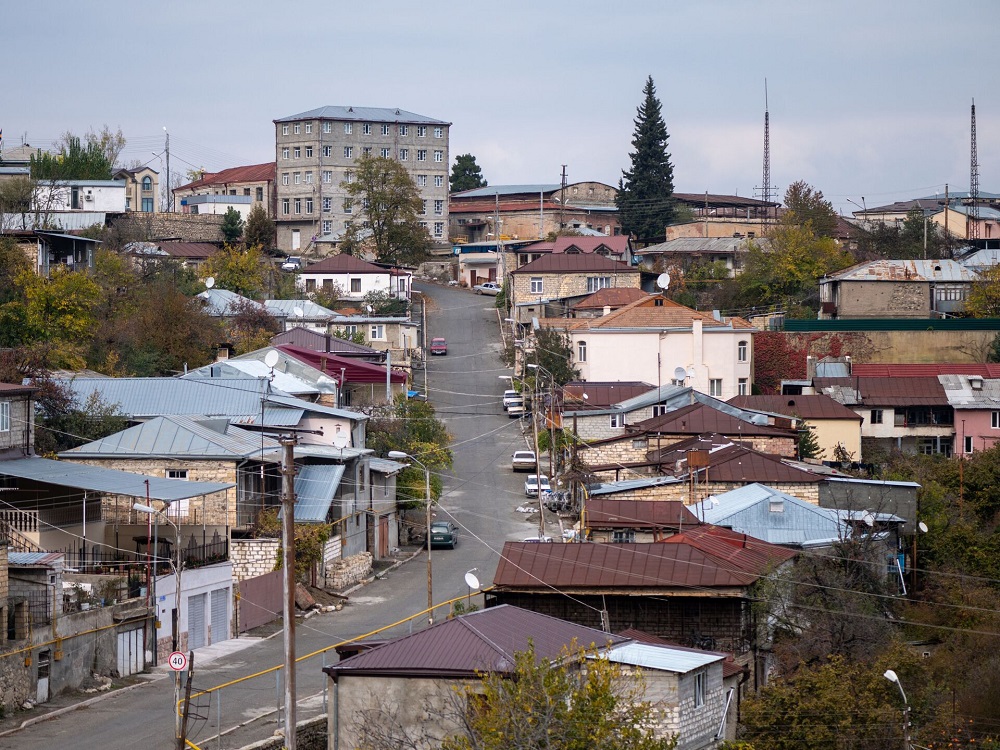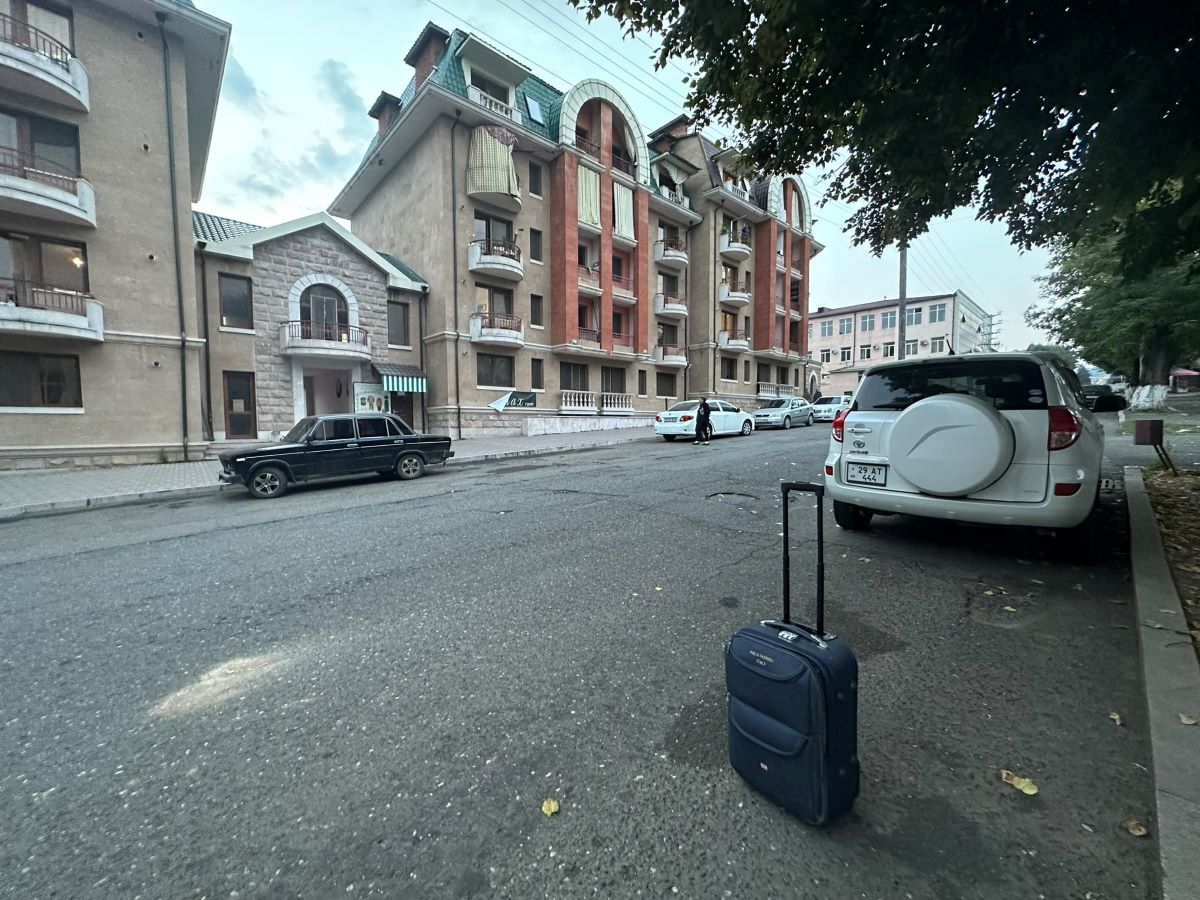What do the US and EU want in the South Caucasus? View from Baku
On Western policy in the South Caucasus
“The Armenian-backed displacement of Armenians from Karabakh has put the West in a quandary. If they continue to bend the pro-Armenian line and call what happened ‘ethnic cleansing,’ they will put themselves in a narrow framework of unilateral condemnation of Azerbaijan,” the South Caucasus Analytical Center says in an article.
“Pashinyan‘s support in Armenia is realistic only through reaching an agreement with Baku, and the West must realize this inevitability. Otherwise, another and much bigger collapse of its regional policy awaits it.”
- “Members of the CANVAS organization conducted training on overthrowing the government in Georgia” – security service
- Baku has won, Armenians are leaving NK: Opinions of all sides of the conflict
- Azerbaijan announces plan for reintegration of Karabakh Armenian community
Experts of the South Caucasus Analytical Center (CSSC) analyzed the regional policy of the United States and the European Union in the light of recent developments in the Azerbaijani-Armenian conflict.
“Will the West admit its mistakes?”
“After Azerbaijan’s counter-terrorist operation in Karabakh, the Western media characterizes the activities of Washington and Brussels in the South Caucasus with such formulae as “the collapse of US and EU policy”, “defeat of Western diplomacy”, “inactivity”.
Usually, two kinds of conclusions are drawn after defeats:
- We did everything right, but were defeated because of the misguided actions of others. We should stick to the old rules;
- We made a mistake. We failed to take something into account somewhere and must change our approaches.
Will the West admit its mistakes, or will it insist that it is acting correctly?
A lot has been said about the West’s mistakes: pro-Armenian approaches, ignoring the expectations of the Azerbaijani side and creating conditions for Russian intervention – all this has led to the West’s current position in our region.
Classification of Western interests in the region
“The Armenian-backed displacement of Armenians from Karabakh has put the West in a difficult position. If they continue to pursue a pro-Armenian line and call what happened “ethnic cleansing”, they will put themselves in a narrow frame of unilateral condemnation of Azerbaijan.
So what does the West want from the South Caucasus, and how can it achieve something positive in the current situation?
If we briefly describe the West’s interests in our region, and the countries involved under these interests, we will get the following picture:
- Energy: Azerbaijan is a source and transit country, Georgia is a transit country;
- Communications: Azerbaijan and Georgia have transit functions;
- Predictability of the region: all three countries;
- Iranian issue of interest to the U.S.: joint work with Azerbaijan and Armenia;
- Ousting Russia: all three countries, but Yerevan is prioritized because of Russia’s greater presence in the country;
- Liberal interference: all three countries, but at the current historical moment and in this context the Pashinyan regime in Yerevan is closer to the West and Armenia’s security is too important for it.
From a geo-economic point of view, Western interests in the region stem from mutual relations with Azerbaijan and Georgia. From the geopolitical point of view, the West’s confrontation with Russia takes place in Armenia, and the confrontation with Iran in the perimeter of Azerbaijan and Armenia. In the Iranian issue, the interests of the US and Azerbaijan coincide, but Yerevan has a different view – for Armenia, relations with Iran and the West are almost equally important.”
“How can the West become effective?”
“And how should the West be effective in the region?
The statements and actions of the U.S. and the European Union have created a situation of time pressure. If they continue in the same vein, problems with Azerbaijan and loss of positions in the region are inevitable. Therefore, there is a need for evolution of regional policy of Washington and Brussels.
Now the collapse of the unilateral position should force the West to reconsider its approaches. Otherwise, continuation of a defeated policy will lead to even greater losses.
In the current situation, the priority for the West is to support the Pashinyan regime and to preserve Armenia’s security.
Based on this logic, if pro-Russian forces take over power in Armenia, Western support will not be as active.
If support for Armenia will be realized through pressure on Azerbaijan, then in this case Baku in the current situation will be interested in overthrowing Pashinyan’s power. And this is not a pro-Russian line of Azerbaijan, simply in this context the interests of Baku and Moscow actually coincide. Because only in such a confluence of circumstances Baku can target Western interests in the region.
If the West takes a critical view of its regional policy and makes operational changes, Baku may be interested in preserving the Pashinyan regime in Armenia.
The meeting between Aliyev and Pashinyan in Granada will demonstrate what path the U.S. and EU will choose. Baku offers the sides a chance to become more constructive. Baku has brought closer the moment that all stakeholders have long warned about: Azerbaijan has fully restored its sovereignty over the entire territory of the country, and achieved this without signing a peace treaty.
Pashinyan’s support in Armenia is realistic only through reaching an agreement with Baku, and the West must realize this inevitability. Otherwise, another and much larger collapse of its regional policy awaits it.”




















